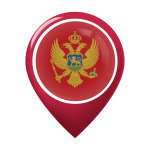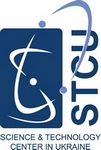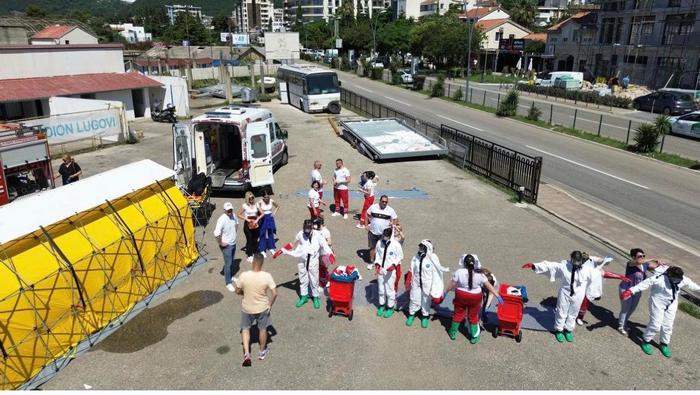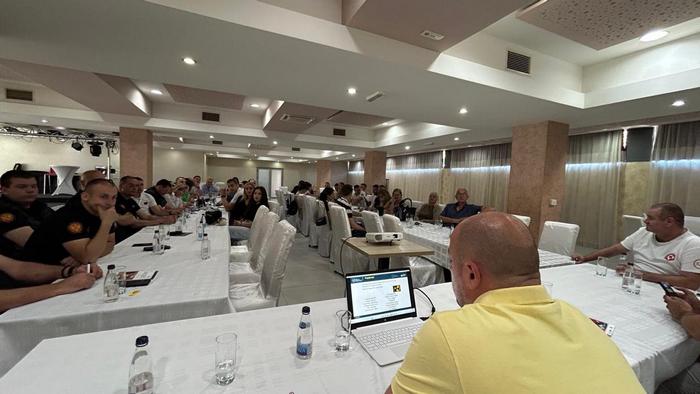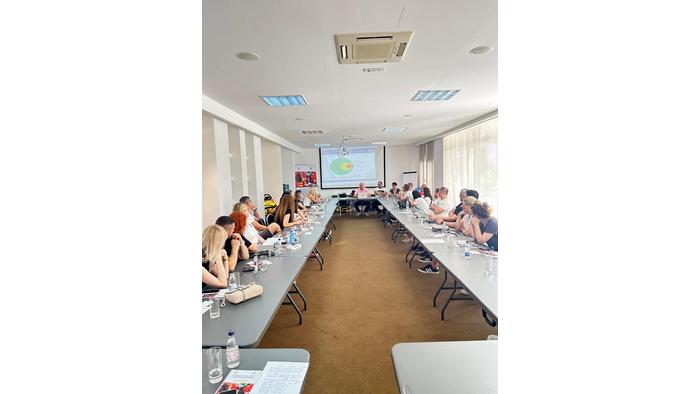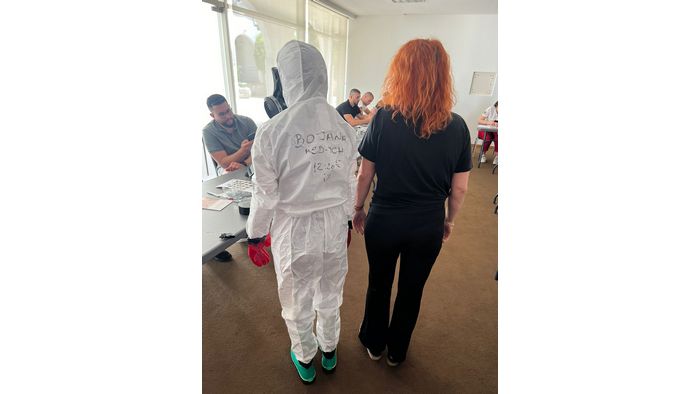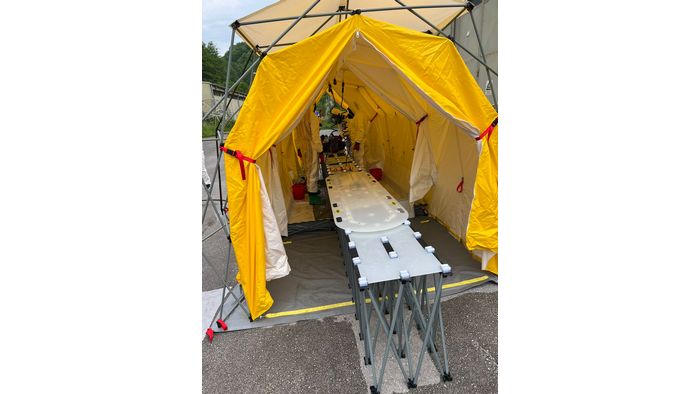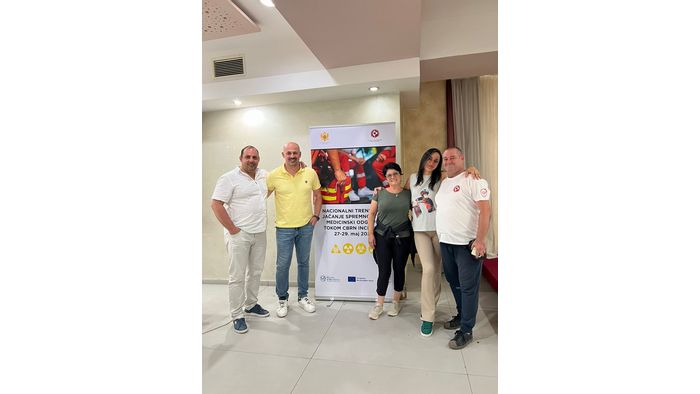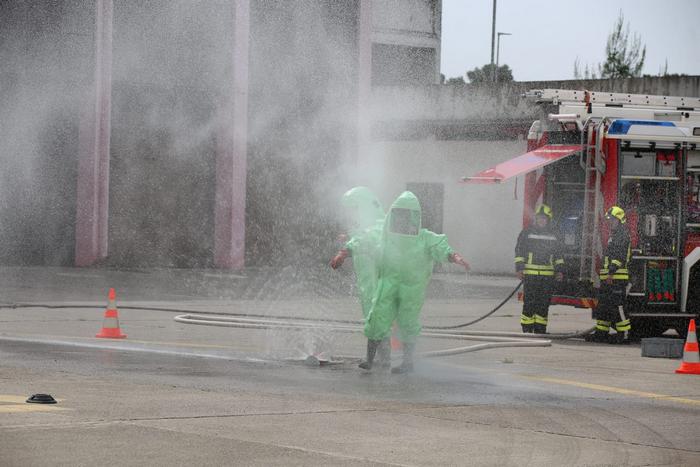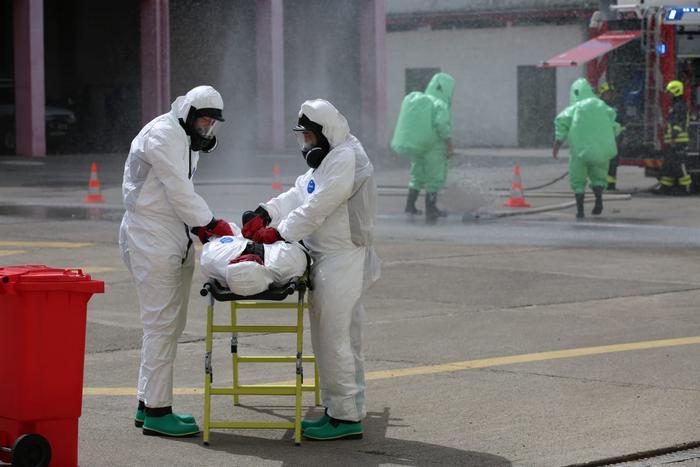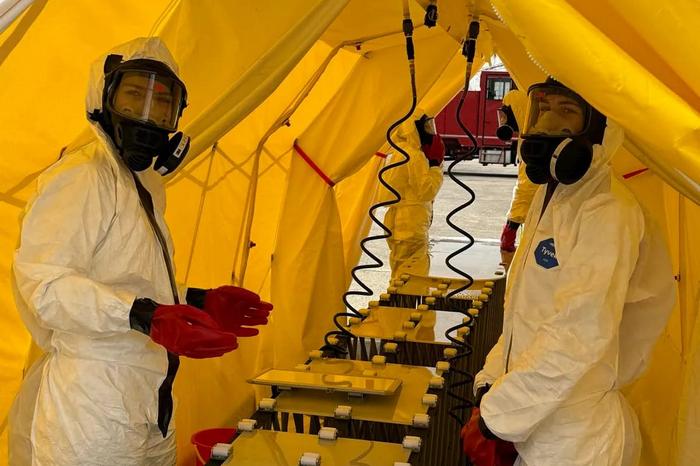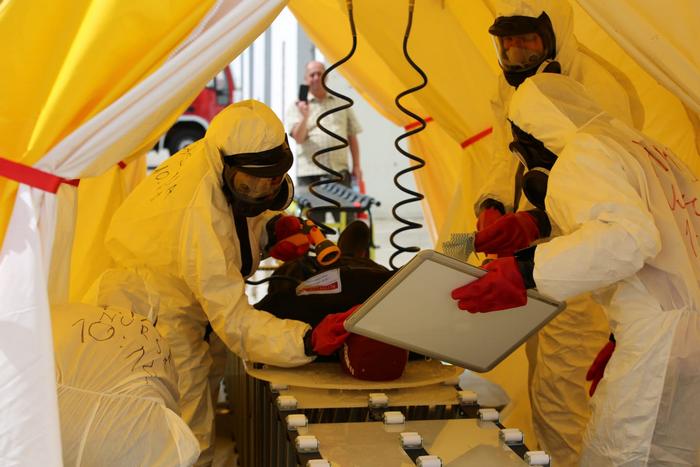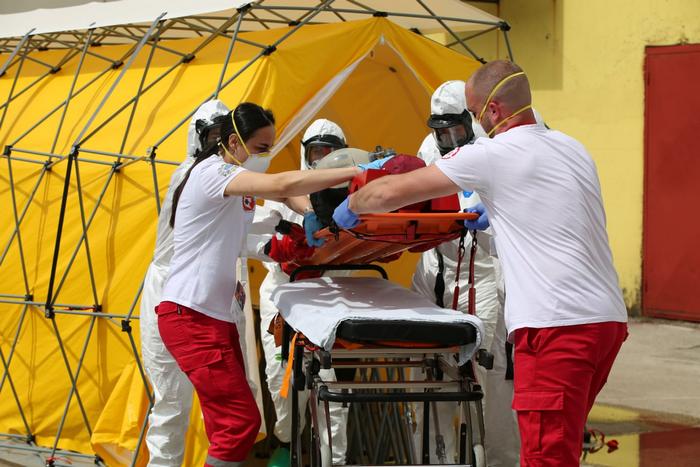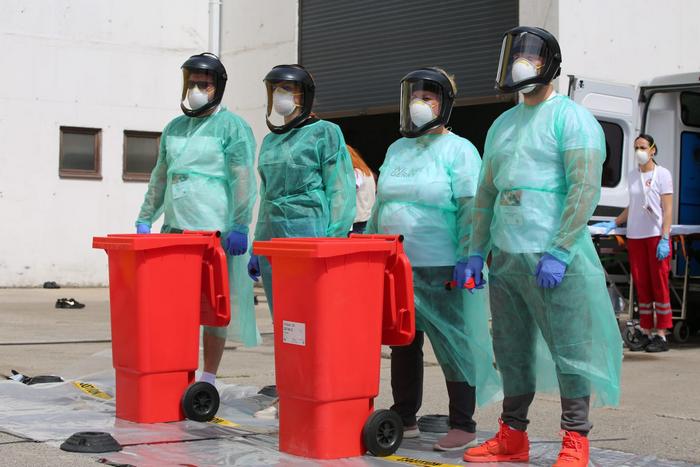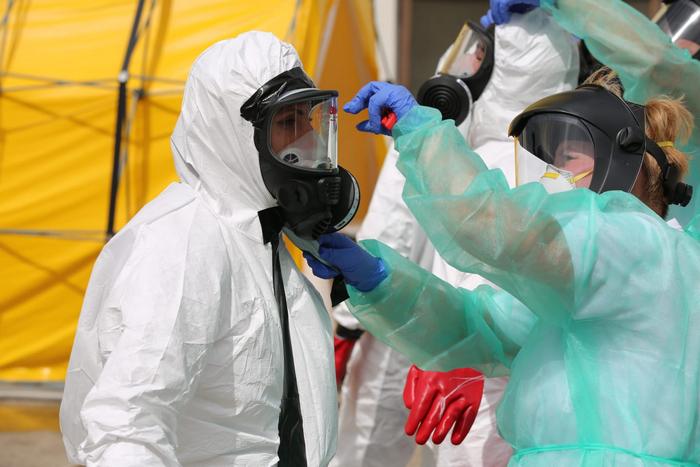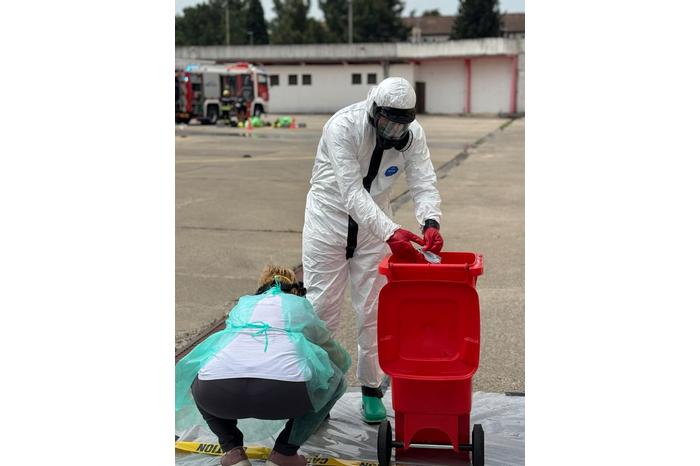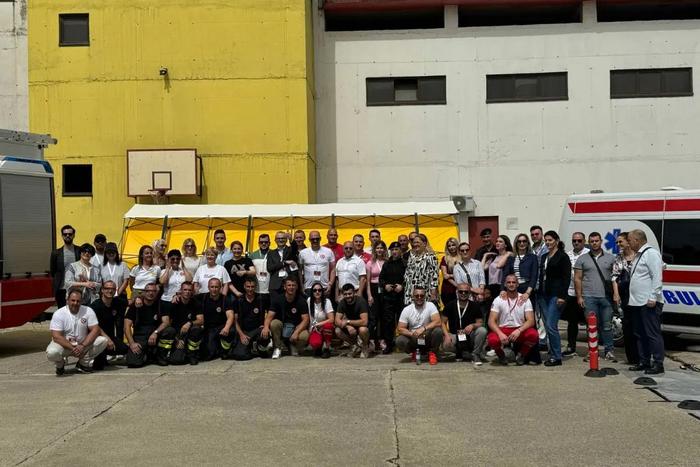Training Center in Montenegro
Contacts
- The Institute for Emergency Medicine of Montenegro
- Vaka Đurovića b.b., 81000 Podgorica, Crna Gora
- Vuk Nikovic
- kontakt@hitna.me
Downloadable materials
Recent News
Third National CBRN Emergency Medicine Training in Montenegro
The completion of the third National CBRN Emergency Medicine Training in Budva, Montenegro, from June 3 to 5, 2024, marked a significant advancement in bolstering the country's readiness for chemical, biological, radiological, and nuclear (CBRN) emergencies. Conducted through a partnership between the Science and Technology Center in Ukraine (STCU) and the Institute for Emergency Medicine of Montenegro, this event, integrated into the EU CBRN CoE Project 88, stands as a pivotal measure in augmenting Montenegro's preparedness for such crises.
Under the guidance of Montenegrin Master Trainers, the training showcased the unwavering commitment of the national team towards providing high-caliber education through localized endeavors. Thirty-seven participants engaged in practical exercises and simulations, gaining invaluable experience and insights into real-life emergency responses. The interactive nature of the training fostered knowledge exchange and collaboration among CBRN professionals, laying a solid foundation for Montenegro's emergency preparedness endeavors. This initiative resonates with the core objectives of Project 88, aimed at fortifying CBRN medical preparedness across Southeast and Eastern Europe.
Second National CBRN Emergency Medicine Training in Montenegro
Bijelo Polje, Montenegro, May 27-29, 2024—The Science and Technology Center in Ukraine (STCU), in partnership with the Institute for Emergency Medicine of Montenegro, concluded the second National CBRN Emergency Medicine Training. Part of the EU CBRN CoE Project 88, this event marks a key milestone in strengthening Montenegro's preparedness for chemical, biological, radiological, and nuclear (CBRN) emergencies.
Led by Montenegrin Master Trainers, this training underscores the national team's commitment to providing high-quality instruction through local initiatives. This effort aligns with the goals of the EU CBRN CoE Project 88, which focuses on improving CBRN medical preparedness and response capabilities in Southeast and Eastern European countries.
42 participants engaged in hands-on exercises and scenario-based simulations, gaining practical experience and valuable insights into real-life emergency responses. The interactive training fostered knowledge exchange and collaboration among CBRN emergency professionals.
The success of this training sets a promising precedent for future initiatives in Montenegro's emergency preparedness. Details on upcoming training sessions will be announced soon, offering further opportunities for capacity-building and collaboration.
Montenegro Successfully Concluded First National CBRN Emergency Medicine Training
Montenegro, May 15-17, 2024 - In a significant step towards enhancing emergency response capabilities, the Science and Technology Center in Ukraine (STCU), in collaboration with the Institute for Emergency Medicine of Montenegro, recently concluded the First National CBRN Emergency Medicine Training. This landmark event, held as part of the EU CBRN CoE Project 88 'Strengthening of CBRN Medical Preparedness and Response Capabilities in South East and Eastern European (SEEE)countries' (Project), marks a crucial milestone in bolstering the country's resilience to chemical, biological, radiological, and nuclear (CBRN) emergencies.
The training program developed within the Project, aimed at empowering SEEE partner countries, focused on establishing sustainable training systems, providing essential equipment, and certifying CBRN Emergency Medicine Master Trainers in all participating countries including Montenegro. The initiative aims to ensure a coordinated and effective response to CBRN incidents by addressing the critical gap in preparedness and response across the region.
The successful completion of the First National CBRN Emergency Medicine Training in Montenegro underscores the commitment of the Montenegrin National Team of Trainers to strengthening emergency response capacities. Supported by the European Union, the training equipped 50 participants from Montenegro with essential skills and knowledge tailored to various target groups.
The comprehensive training program catered to first-line responders, hospital staff, emergency managers, paramedics, and medical professionals, providing specialized instruction in pre-hospital management, hospital operations, strategic planning, resource allocation, and patient care in CBRN scenarios.
Through hands-on exercises and scenario-based simulations, participants gained practical experience and valuable insights into responding to real-life emergency situations. The immersive and interactive nature of the training facilitated knowledge exchange, networking, and collaboration among professionals in the field of CBRN emergency medicine.
As Montenegro lays the groundwork for a resilient and coordinated response system, the success of the First National CBRN Emergency Medicine Training sets a promising precedent for future initiatives. Detailed information on upcoming training sessions will be provided in the coming months, offering further opportunities for capacity-building and collaboration in CBRN emergency preparedness and response. Interested individuals and organizations are encouraged to stay updated for forthcoming critical training opportunities.









